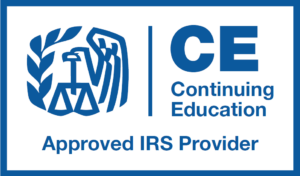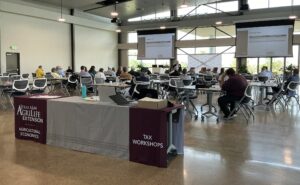Click the workshop title for details!
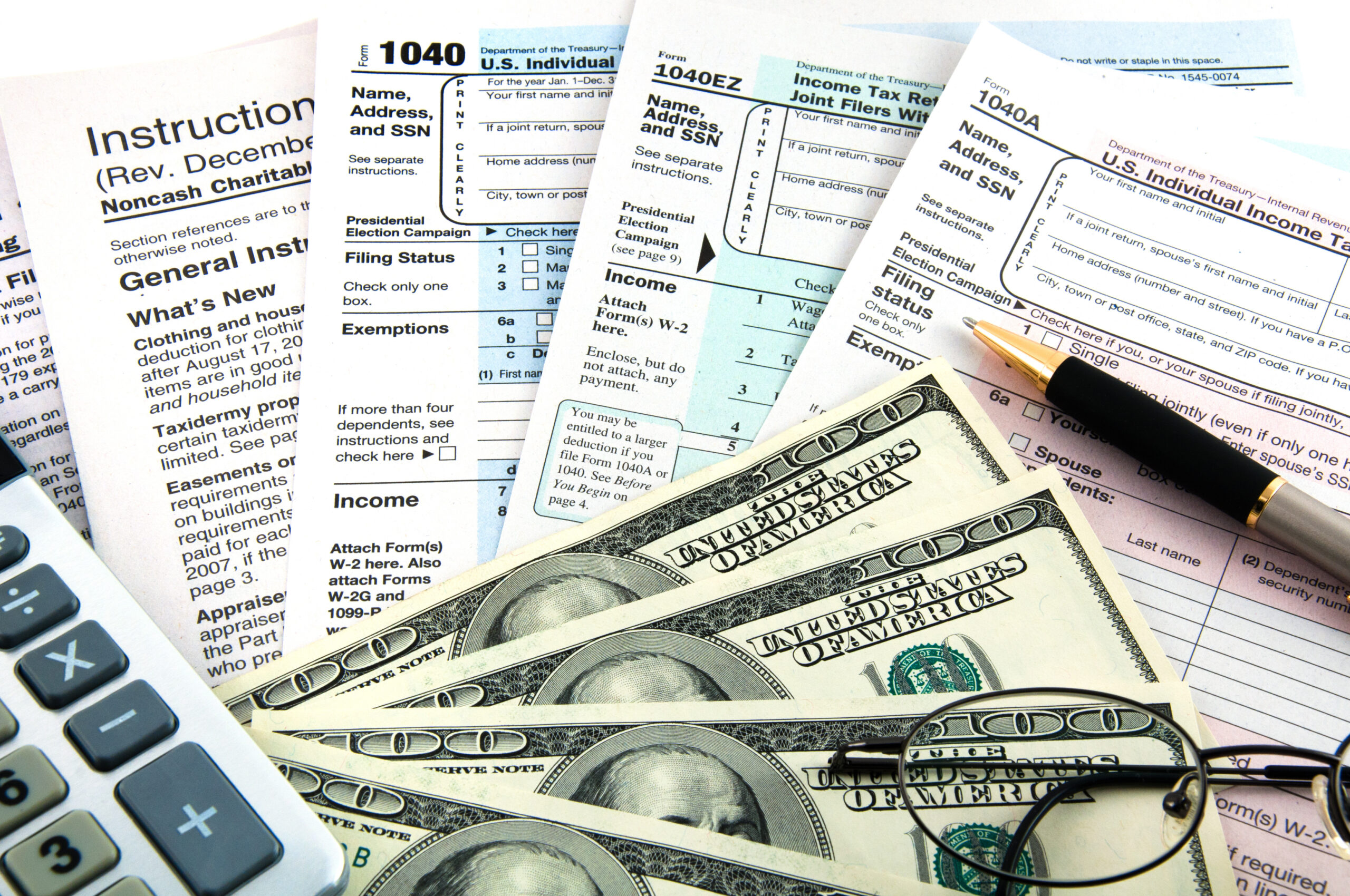
General Income Tax Workshop
Course Overview – Our learner-focused instruction includes new and current tax laws plus special topics for tax professionals. Significant time will be devoted to discussing H.R.1 – One Big Beautiful Bill Act! Active learning strategies are incorporated to promote application of the new content. Materials for this workshop are based on the National Income Tax Workbook. It is written and published by the Land Grant University Tax Education Foundation, Inc., a nonprofit corporation organized by several land grant universities that teach tax education programs for tax practitioners. The National Income Tax Workbook and PowerPoint slides are included in the registration fee.
Audience – Enrolled Agents (EA), Certified Public Accountants (CPA), Other Tax Return Preparers (OTRP), Certified Financial Planners (CFP), attorneys, and bookkeepers
Workshop Fee – $460
RIA Checkpoint Federal Tax Handbook (Optional Purchase) – $95
- For more information, please visit Checkpoint Federal Tax Handbook: The Federal Tax Book Trusted by Professionals
In-Person – Registration coming soon!
- November 4-5, 2025 Dallas, Healthy Living Flex Space, Texas A&M AgriLife Research and Extension Center, 17360 Coit Rd. | Regular Registration deadline October 21, 2025 @ 12:00 PM, Late Registration deadline is October 28, 2025 @ 12:00 PM with a $50 late fee.
- November 12-13, 2025, Houston, TownePlace Suites Stafford Sugar Land, 11031 Fountain Lake Dr, Stafford, TX 77477 | Regular Registration deadline October 24, 2025 @ 12:00 PM, Late Registration deadline is October 31, 2025 @ 12:00 PM with a $50 late fee.
Webinar – Registration coming soon!
- November 17-18, 2025 | Regular Registration November 3, 2025 @ 12:00 PM, Late Registration deadline is November 10, 2025 @ 12:00 PM with a $50 late fee.
- December 8-9, 2025 | Regular Registration November 24, 2025 @ 12:00 PM, Late Registration deadline is December 1, 2025 @ 12:00 PM with a $50 late fee.
Continuing Education Credits – We are a continuing education provider for the Internal Revenue Service, Texas State Board of Public Accountancy, State Bar of Texas, and Certified Financial Planner Board.
- EA – 16 hours
- CPA – 16 hours
- Attorneys – 13.5 hours
- OTRP – 13 hours of Federal Tax Law and 3 hours of Federal Tax Law Updates
- CFP – 16 hours
Networking Lunch – As a way of encouraging networking opportunities, we are providing lunch!
Courtesy Block Hotels – Click on the links below to make a reservation!
- Dallas, Springhill Suites Dallas / Richardson / University – Reservation Deadline 10-13-2025 Book your group rate for Texas A&M AgriLife Extension Tax Workshop
- Houston, TownePlace Suites Stafford / Sugar Land – Reservation Deadline 10-20-2025 Book your group rate for Texas A&M AgriLife Extension Tax Workshop
Purpose – As the Treasury and the IRS continue to issue regulations and procedures for new tax laws, tax professionals need the most current information to serve their clients effectively.
Program Level/Prerequisite – Since this is an intermediate level workshop, participants should have at least two years’ experience as a professional tax preparer and an understanding of tax rules and regulations associated with individual and business tax returns. No prerequisites are needed for this course.
Learning Objective – Participants will be able to apply concepts and strategies presented during the workshop.
Content – This workshop will include material from some of the chapters of the National Income Tax Workbook. The chapters are:
- Ethics – This chapter discusses important issues that help tax practitioners comply with their ethical obligations. Topics include new guidance on responding to noncompliance with laws and regulations, proposed Circular 230 changes and their impact on representation before the IRS, best practices under the proposed Circular 230 regulations for data security safeguards,
addressing a mental impairment, and business continuity plans, contingency fees and other disreputable conduct under the proposed Circular 230 regulations, and ten case studies that illustrate real-life ethical scenarios. - Religious Organizations – This chapter explains rules that apply to religious organizations and their employees and members. It explains tax-exempt status for a religious organization. This chapter discusses a religious organization’s entity tax and unrelated business income. It reviews the taxation of religious organization service providers. Finally, this chapter details the required procedure for an IRS church audit.
- Trusts and Estates – This chapter discusses tax rules for revocable trusts. It explains the I.R.C. § 645 election to treat a qualified revocable trust as part of a related estate. It reviews when a trust or estate can obtain an income tax charitable contribution deduction and when an estate can claim an estate tax charitable deduction. This chapter explains how to determine the basis of inherited property and gifted property, and the consistent basis requirements that apply to certain estates. Finally, this chapter explains estate and gift tax considerations for a nonresident noncitizen.
- Business Entity Tax Issues – This chapter examines current issues that pertain to business entities, including the determination of basis and holding period of assets contributed to a corporation or a partnership. It explains new case law that could impact the character of gain or loss on the sale of a partnership interest. This chapter provides an overview of the reporting requirements for property distributed by a partnership and the sale or exchange of certain partnership interests. This chapter also explains partnership elections. Finally, this chapter discusses taxation and reporting for a homeowners’ association.
- Installment Sales – This chapter examines installment sales, including the calculation of installment sale income and depreciation recapture. It discusses the sale of a business on an installment sale, and how installment income is reported. This chapter also explains how a reduction in the selling price impacts installment sale income, and how to calculate gain for a contingent payment installment sale. This chapter also discusses electing out of the installment sale method. It reviews the special rules that apply to an installment sale to a related party and an installment sale combined with a like-kind exchange. Finally, this chapter reviews the disposition of an installment obligation, and the tax treatment upon the death of the installment note holder or repossession of installment sale property.
- Retirement Tax Issues – This chapter discusses important tax topics for retirement accounts. Topics include new guidance for required minimum distributions from inherited retirement accounts, designating a trust as a beneficiary of a retirement account, Roth IRAs, designated Roth contributions and the Roth catch-up rule, retirement account disaster distributions, ABLE Accounts, education savings account rollovers to Roth, and qualified charitable distributions.
- Tax Benefits for Homeowners – This chapter discusses tax benefits that are available to homeowners. It explains the mortgage interest deduction and the deduction for state and local real estate taxes. It discusses how to calculate and report the home office deduction. This chapter explains the exclusion of gain on the sale of a principal residence and the exclusion from cancellation of debt income for qualified principal residence indebtedness. Finally, this chapter reviews important tax advantages for a taxpayer’s whose principal residence is in a disaster area.
- Individual Tax Issues – This chapter covers several current issues for tax practitioners preparing individual income tax returns, including determining filing status, tax on children’s income, constructive receipt of income, earned income tax credit, itemized deductions, and wildfire disaster relief.
- Business Tax Issues – This chapter reviews the deduction for start-up and organizational expenses. This chapter explains equity-based compensation for a small business. It also discusses how to allocate the purchase price among assets in an asset sale. This chapter details when and how to correct depreciation errors. Finally, this chapter discusses the commercial clean vehicle credit, including new guidance for leased vehicles.
- IRS Issues – This chapter covers issues key IRS issues for practitioners. Topics include IP PINs, new features of the Digital Tax Initiative business tax accounts, the Document Upload Tool, IRS transcripts, installment payment agreements, written information security plans, and tax scams
- Agricultural and Natural Resource Tax Issues – This chapter covers several current issues for tax practitioners preparing returns for farmers and ranchers, including depreciation of agricultural buildings and structures, marketing assistance (formerly CCC) loans, 4H and FFA income and expenses, taxation of unharvested crops, tax issues arising at the death of a farmer.
- New and Expiring Legislation – This chapter covers recently enacted tax legislation and procedures. It is organized by subject to help participants quickly find topics of interest and includes a table of tax provisions that expired or are set to expire.
- Rulings and Cases – This chapter summarizes selected rulings and cases that were issued from September 2024 through August 2025. It gives participants an update on issues that are being addressed by the IRS and the courts.
- Tax Rates and Useful Tables – This chapter reports the tax rates, deduction limits, credit limits, and income thresholds and limits that change each year.
Presenters – Catherine Ozment and Scott Youngblood – See Our Team – Tax Workshops for biographical information.
Agenda – Day One (To Be Determined)
- 8:20-8:30 Welcome | Announcements | Introductions
- 8:30-10:10
- 10:10-10:20 Break
- 10:20-12:00
- 12:00-1:00 Lunch
- 1:00-2:45
- 2:45-2:55 Break
- 2:55-4:35
Agenda – Day Two (To Be Determined)
- 8:20-8:30 Welcome | Announcements | Learning Check
- 8:30-10:10
- 10:10-10:20 Break
- 10:20-12:00
- 12:00-1:00 Lunch
- 1:00-2:45
- 2:45-2:55 Break
- 2:55-4:35

Small Business Tax Workshop (Advanced)
Course Overview – Materials for this workshop are based on J.K. Lasser’s Small Business Taxes 2025: Your Complete Guide to a Better Bottom Line | Wiley by Barbara Weltman. Implications of the H.R.1 – One Big Beautiful Bill Act will be discussed. Participants will receive workshop handouts with PowerPoint slides and Barbara Weltman’s book as part of the registration fee. Active learning strategies will be used to engage participants with case studies related to each topic.
Audience – Enrolled Agents (EA), Certified Public Accountants (CPA), Certified Financial Planners (CFP), Other Tax Return Preparers (OTRP), and attorneys.
Workshop Fee – $460
RIA Checkpoint Federal Tax Handbook (Optional Purchase) – $95
- For more information, please visit Checkpoint Federal Tax Handbook: The Federal Tax Book Trusted by Professionals
In-Person – Registration coming soon!
- November 6-7, 2025 Dallas, Healthy Living Flex Space, Texas A&M AgriLife Research and Extension Center, 17360 Coit Rd. | Regular Registration deadline October 21, 2025 @ 12:00 PM, Late Registration deadline is October 28, 2025 @ 12:00 PM with a $50 late fee.
- November 10-11, 2025, Houston, TownePlace Suites Stafford Sugar Land, 11031 Fountain Lake Dr, Stafford, TX 77477 | Regular Registration deadline October 27, 2025 @ 12:00 PM, Late Registration deadline is November 3, 2025 @ 12:00 PM with a $50 late fee.
Webinar – Registration coming soon!
- November 20-21, 2025 | Regular Registration November 3, 2025 @ 12:00 PM, Late Registration deadline is November 10, 2025 @ 5:00 PM with a $50 late fee.
- December 11-12, 2025 | Regular Registration November 24, 2025 @ 12:00 PM, Late Registration deadline is December 1, 2025 @ 12:00 PM with a $50 late fee.
Continuing Education Credits – We are a continuing education provider for the Internal Revenue Service, Texas State Board of Public Accountancy, State Bar of Texas, and Certified Financial Planner Board.
- EA – 16 hours
- CPA – 16 hours
- Attorneys – 13.5 hours
- OTRP – 13 hours of Federal Tax Law and 3 hours of Federal Tax Law Updates
Networking Lunch – As a way of encouraging networking opportunities, we are providing lunch!
Courtesy Block Hotels – Click on the links below to make a reservation!
- Dallas, Springhill Suites Dallas / Richardson / University – Reservation Deadline 10-13-2025 Book your group rate for Texas A&M AgriLife Extension Tax Workshop
- Houston, TownePlace Suites Stafford / Sugar Land – Reservation Deadline 10-20-2025 Book your group rate for Texas A&M AgriLife Extension Tax Workshop
Purpose – In a small business and financial advising atmosphere, tax professionals serve as a trusted source of information and expertise. Therefore, they need to stay current on regulations and strategies to more effectively assist their clients.
Program Level/Prerequisite – Since this is an advanced level workshop, participants should have at least three years’ experience as a professional tax preparer for business and/or self-employed individuals and an understanding of tax rules and regulations associated with business returns and individual returns, especially Schedule C. No prerequisites are needed for this course.
Learning Objective – Participants will be able to apply concepts and strategies presented during the workshop.
Content – The workshop will focus on small business tax issues, provide several relevant examples, and discuss the impact of upcoming changes to the tax law. The content will be divided into four sections:
- Organization – The organization of a business impacts how income and deductions are reported to the IRS on a tax return. This section will focus on the tax year and accounting methods. We will identify proper recordkeeping methods that enable you to change your business strategy to optimize results.
- Business Income and Losses – The categories of income and losses can differ among various types of businesses. However, companies may also produce multiple forms of each. This section will address the different classifications of income and losses, including those arising from operations, capital gains, and the sale of business property.
- Business Deductions and Credits – We will spend a substantial part of our class time reviewing examples of various deductions and credits, including compensation options, vehicles, repairs and maintenance, bad debts, rents, depreciation, amortization, advertising, QBI, and retirement plans.
- Tax Planning – Successful business owners understand the importance of optimizing tax efficiencies. An integral aspect of implementing effective tax strategies is thorough preparation. This section aims to consolidate information from earlier parts of the course into a detailed tax plan for small businesses. We will explore tax planning strategies for various types of businesses.
Presenters – Herb Wiebe, Scott Youngblood – See Our Team – Tax Workshops for biographical information.
Agenda – Day One (To Be Determined)
- 8:20-8:30 Welcome | Announcements | Introductions
- 8:30-10:10
- 10:10-10:20 Break
- 10:20-12:00
- 12:00-1:00 Lunch
- 1:00-2:45
- 2:45-2:55 Break
- 2:55-4:35
Agenda – Day Two (To Be Determined)
- 8:20-8:30 Welcome | Announcements | Learning Check
- 8:30-10:10
- 10:10-10:20 Break
- 10:20-12:00
- 12:00-1:00 Lunch
- 1:00-2:45
- 2:45-2:55 Break
- 2:55-4:35

Agricultural Tax Issues Workshop
Course Overview – Our learner-focused instruction includes new and current tax laws as they apply to agricultural issues. Active learning strategies are incorporated to promote application of the new content. Materials for this workshop are based on the Agricultural Tax Issues Workbook. It is written and published by the Land Grant University Tax Education Foundation, Inc., a nonprofit corporation organized by several land grant universities that teach tax education programs for tax practitioners. The Agricultural Tax Issues Workbook and PowerPoint slides are included in the registration fee.
Audience – Enrolled Agents (EA), Certified Public Accountants (CPA), Other Tax Return Preparers (OTRP), Certified Financial Planners (CFP), attorneys, and bookkeepers
Workshop Fee – $160
RIA Checkpoint Federal Tax Handbook (Optional Purchase) – $95
- For more information, please visit Checkpoint Federal Tax Handbook: The Federal Tax Book Trusted by Professionals
In-Person – Registration coming soon!
- December 2, 2025 – Victoria, 4-H Activity Center, Texas A&M AgriLife Extension Office for Victoria County, 528 Waco Cir, | Regular Registration Deadline November 19, 2025 @ 12:00 PM, Late Registration deadline is November 24, 2025 @ 12:00 PM with a $50 late fee.
Webinar – Registration coming soon!
- December 4, 2025 – Regular Registration Deadline November 19, 2025 @ 5:00 PM, Late Registration deadline is November 24, 2025 @ 12:00 PM with a $50 late fee.
Continuing Education Credits – We are a continuing education provider for the Internal Revenue Service, Texas State Board of Public Accountancy, State Bar of Texas, and Certified Financial Planner Board.
- EA – 4 hours
- CPA – 4 hours
- OTRP – 4 hours of Federal Tax Law
- CFP – 4 hours
- Attorneys – 3.25 hours
Purpose – As the Treasury and the IRS continue to issue regulations and procedures for new tax laws, tax professionals need the most current information about agricultural issues to serve their clients effectively.
Program Level/Prerequisite – Since this is an intermediate level workshop, participants should have at least two years’ experience as a professional tax preparer and an understanding of tax rules and regulations associated with farm tax returns.
Learning Objective – Participants will be able to apply concepts and strategies presented during the workshop.
Content – This workshop will include material from some of the chapters of the Agricultural Tax Issues Workbook.
- Chapter One: Timely Tax Issues Impacting Farmers and Ranchers – This chapter addresses an assortment of timely agricultural tax issues, including the tax treatment of agricultural buildings and structures, CCC marketing assistance loans, 4-H club and FFA projects, and the sale of inherited farm assets. Additionally, the chapter reviews the valuation of unharvested crops, special use valuation, and unused carryovers flowing from the death of a farmer.
- Chapter Two: Legislative and Regulatory Update – This chapter reviews new legislation and regulations impacting agricultural producers and rural landowners.
- Chapter Three: Farm Lease Tax Issues – This chapter covers tax issues associated with cash rent, crop share, and flex leases. It also addresses common issues such as improvements by tenants, self-rentals, and equipment leases.
- Chapter Four: Farm Partnership Tax Matters – This chapter reviews key tax issues arising in farm partnerships and LLCs, including SE tax obligations, farm transition considerations, new partner and exiting partner options, and more.
- Chapter Five: Installment Method on the Farm – This chapter reviews IRC § 453 and its use with farm transactions. Included is a discussion of installment sales, constructive receipt, imputed interest, deferred payment contracts, and more.
- Chapter Six: Deducting Residual Soil Fertility – This chapter provides an in-depth review of the practice of allocating value to soil fertility when acquiring farmland. Included is a discussion of applicable guidance, case law, best practices, and the unknowns.
- Chapter Seven: Healthcare Options for Farmers – This chapter reviews key changes to the law impacting farmers’ healthcare options in 2026 and beyond. The chapter also reviews current options for tax-advantaged healthcare arrangements.
- Chapter Eight: Cost Recovery in 2025 and Beyond – This chapter reviews the current use of Section 179, Bonus Depreciation, and other cost recovery methods for farm assets. This chapter also provides a review of the use of the tangible property regulations in a farm business.
- Chapter Nine: Selling and Trading Farm Property – This chapter provides an in-depth discussion—with examples—of the rules for reporting the sale and exchange of farm property.
- Chapter Ten: Sample Return – The sample return includes a Form 1040, Schedule F, Form 4797, Form 4562, and other supporting forms and schedules. It illustrates how to report income and expenses common to agricultural producers.
Presenter – Catherine Ozment – See Our Team – Tax Workshops for biographical information.
Agenda – To Be Determined
- 8:20-8:30 Welcome/Announcements/Introductions
- 8:30-9:20
- 9:20-10:10
- 10:10-10:20 Break
- 10:20-11:10
- 11:10-12:00
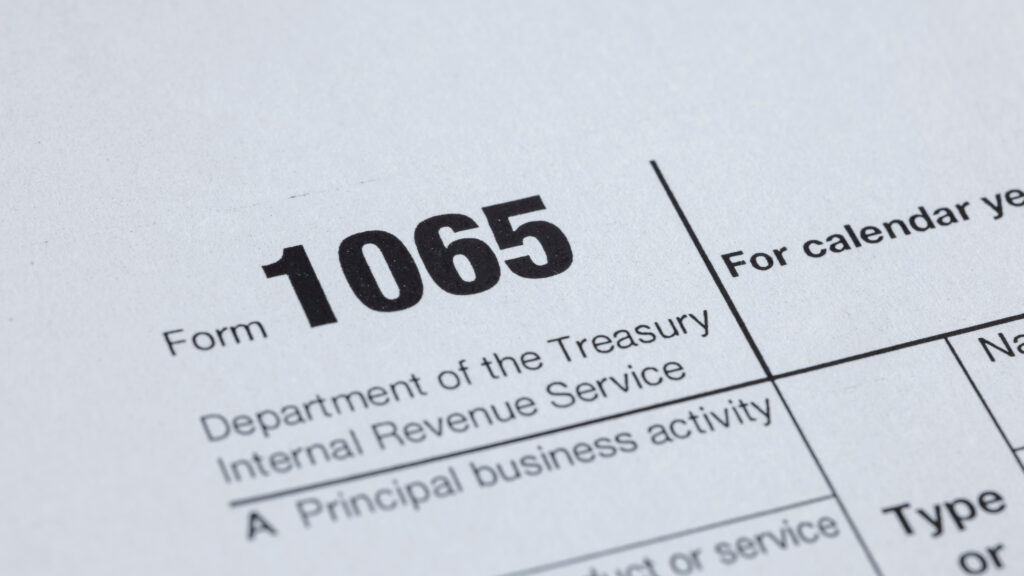
How to Complete IRS Form 1065 (K-1) Workshop
Course Overview – Our learner-focused course will use the most current IRS publications to cover some of the tax advantages and differences between Disregarded Entities, S Corporations and Partnerships and small business retirement plans. Materials for this workshop will be provided along with PowerPoint slides. Active learning strategies will be used to engage participants with case studies related to Form 1065.
Audience – Enrolled Agents (EA), Certified Public Accountants (CPA), Certified Financial Planners (CFP), and Other Tax Return Preparers (OTRP).
Workshop Fee – $80
RIA Checkpoint Federal Tax Handbook (Optional Purchase) – $95
- For more information, please visit Checkpoint Federal Tax Handbook: The Federal Tax Book Trusted by Professionals
Webinar – Registration coming soon!
- October 28, 2025 – Regular Registration Deadline October 14, 2025 @ 12:00 PM, Late Registration deadline is October 21, 2025 @ 12:00 PM with a $50 late fee.
Continuing Education Credits – We are a continuing education provider for the Internal Revenue Service, Texas State Board of Public Accountancy, State Bar of Texas, and Certified Financial Planner Board.
- EA – 2 hours
- CPA – 2 hours
- OTRP – 2 hours of Federal Tax Matters
Purpose – This workshop will focus on small businesses that utilize the Partnership tax return. In a small business and financial advising atmosphere, tax professionals serve as a trusted source of information and expertise. Therefore, they need to stay current on regulations and strategies to assist their clients more effectively.
Program Level/Prerequisite – This workshop is not only for those that do not have a lot of experience with completing a Partnership tax return as we will be providing some more advanced subjects as well for those participants that have more experience as a professional tax preparer for businesses and individuals and an understanding of tax rules and regulations associated with Partnership tax returns. No prerequisites are needed for this course.
Learning Objective – Participants will be able to apply concepts and strategies presented during the workshop.
Content – The course will review topics related to Partnerships. For example, the rules regarding Partnership creation, compensation requirements, deductions, distributions, and reporting losses. In addition, a Partner Basis worksheet will be reviewed and show how it is related to the partner’s individual tax return. Some retirement plans options will be discussed, along with the Section 199A deduction for the individual partner. The course will include a case study involving step-by-step preparation of Form 1065.
Presenter – Scott Youngblood – See Our Team – Tax Workshops for biographical information.
Agenda – To Be Determined
- 8:20-8:30 Welcome | Announcements | Learning Check
- 8:30-10:10
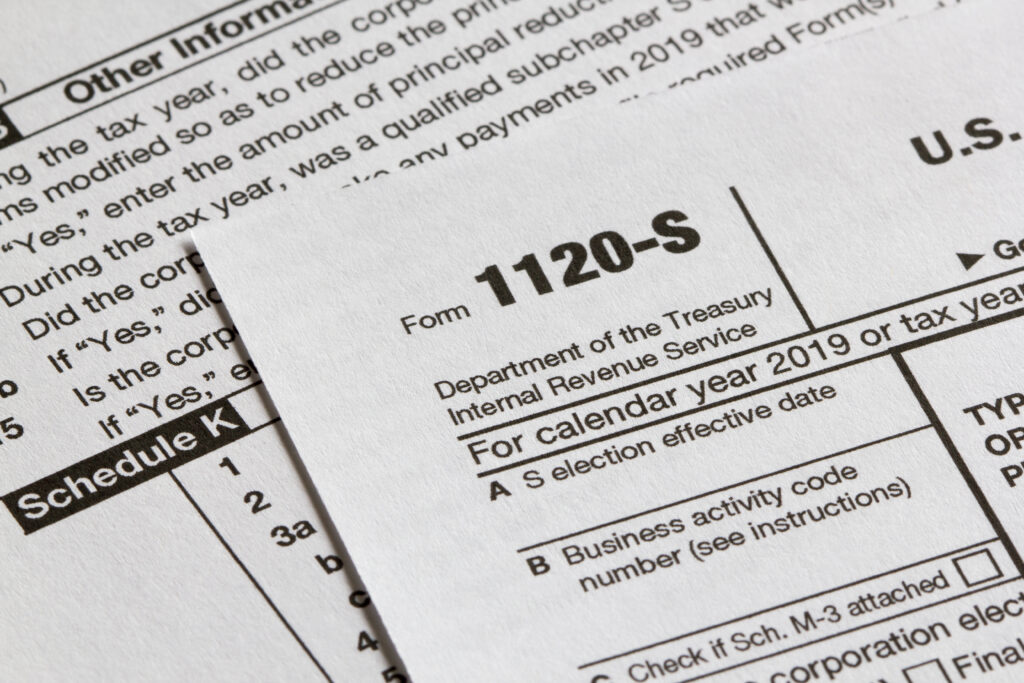
How to Complete IRS Form 1120-S Workshop
Course Overview – Our learner-focused course will use the most current IRS publications to cover some of the tax advantages and differences between Disregarded Entities, S Corporations and Partnerships and small business retirement plans. Materials for this workshop will be provided along with PowerPoint slides. Active learning strategies will be used to engage participants with case studies related to Form 1120S.
Audience – Enrolled Agents (EA), Certified Public Accountants (CPA), Certified Financial Planners (CFP), and Other Tax Return Preparers (OTRP).
Workshop Fee – $80
RIA Checkpoint Federal Tax Handbook (Optional Purchase) – $95
- For more information, please visit Checkpoint Federal Tax Handbook: The Federal Tax Book Trusted by Professionals
Webinar – Registration coming soon!
- October 28, 2025 – Regular Registration Deadline October 14, 2025 @ 12:00 PM, Late Registration deadline is October 21, 2025 @ 12:00 PM with a $50 late fee.
Continuing Education Credits – We are a continuing education provider for the Internal Revenue Service, Texas State Board of Public Accountancy, State Bar of Texas, and Certified Financial Planner Board.
- EA – 2 hours
- CPA – 2 hours
- OTRP – 2 hours of Federal Tax Matters
Purpose – This course will focus on small businesses that utilize the S Corporation tax return. In a small business and financial advising atmosphere, tax professionals serve as a trusted source of information and expertise. Therefore, they need to stay current on regulations and strategies to assist their clients more effectively.
Program Level/Prerequisite – This workshop is not only for those that do not have a lot of experience with completing an S Corporation tax return as we will be providing some more advanced subjects as well for those participants that have more experience as a professional tax preparer for businesses and individuals and an understanding of tax rules and regulations associated with S Corporation tax returns. No prerequisites are needed for this course.
Learning Objective – Participants will be able to apply concepts and strategies presented during the workshop.
Content – The course will review topics related to S Corporations. For example, the rules regarding S Corporations creation, compensation requirements, deductions, distributions, and reporting losses. In addition, Form 7203 will be reviewed and demonstrated on the shareholders individual tax return. Some retirement plans options will be discussed, along with the Section 199A deduction for the individual shareholder. The course will include a case study involving step-by-step preparation of Form 1120S.
Presenter – Scott Youngblood – See Our Team – Tax Workshops for biographical information.
Agenda – To Be Determined
- 12:00 – 12:10 Welcome | Announcements | Learning Check
- 12:10 – 1:50
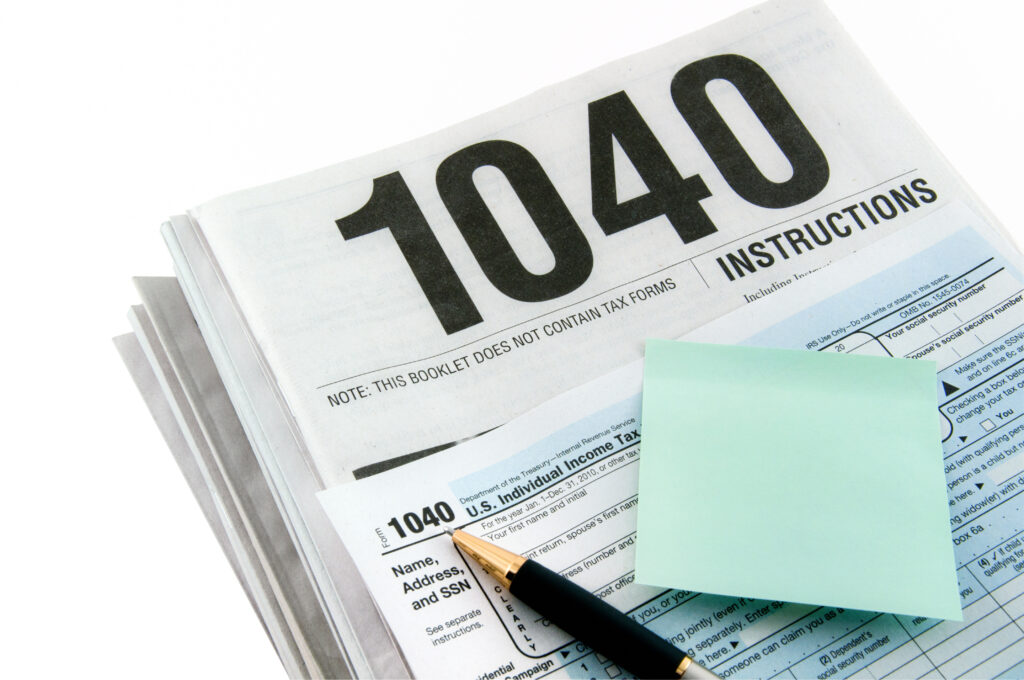
How to Complete IRS Form 1040 Workshop
Course Overview – Our learner-focused course will use the most current IRS publications to cover how to prepare Form 1040. Materials for this workshop will be provided along with PowerPoint slides. Active learning strategies will be used to engage participants with case studies related to Form 1040.
Audience – Enrolled Agents (EA), Certified Public Accountants (CPA), Certified Financial Planners (CFP), and Other Tax Return Preparers (OTRP).
Workshop Fee – $160
RIA Checkpoint Federal Tax Handbook (Optional Purchase) – $95
- For more information, please visit Checkpoint Federal Tax Handbook: The Federal Tax Book Trusted by Professionals
Webinar – Registration coming soon!
- October 30, 2025 – Regular Registration Deadline October 14, 2025 @ 12:00 PM, Late Registration deadline is October 21, 2025 @ 12:00 PM with a $50 late fee.
Continuing Education Credits – We are a continuing education provider for the Internal Revenue Service, Texas State Board of Public Accountancy, State Bar of Texas, and Certified Financial Planner Board.
- EA – 4 hours
- CPA – 4 hours
- OTRP – 4 hours of Federal Tax Matters
Purpose – This course will focus on the preparation of an Individual income tax return. Tax professionals serve as a trusted source of information and expertise for clients with regard to their income tax and how it affects their financial situation. Therefore, tax professionals need to stay current on regulations and strategies to assist their clients more effectively.
Program Level/Prerequisite – This workshop is not only for those that do not have a lot of experience with completing individual tax returns as we will be providing some more advanced subjects as well for those participants that have more experience as a professional tax preparer for businesses and individuals and an understanding of tax rules and regulations associated with individual tax returns. No prerequisites are needed for this course.
Learning Objective – Participants will be able to apply concepts and strategies presented during the workshop
Content – The course will review topics related to individual tax returns. In addition to Form 1040 itself, the course will cover Schedule A, Schedule B, Tax Credits, Schedule C, Schedule E, and other related forms commonly used with Form 1040. The course will include a case study involving step-by-step preparation of Form 1040.
Presenter – Scott Youngblood – See Our Team – Tax Workshops for biographical information.
Agenda – To Be Determined
- 8:20-8:30 Welcome | Announcements | Learning Check
- 8:30-10:10
- 10:10-10:20 Break
- 10:20-12:00
